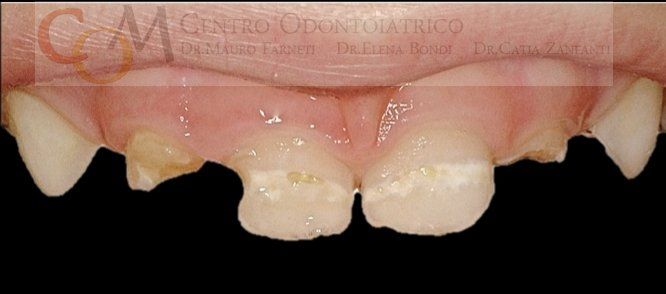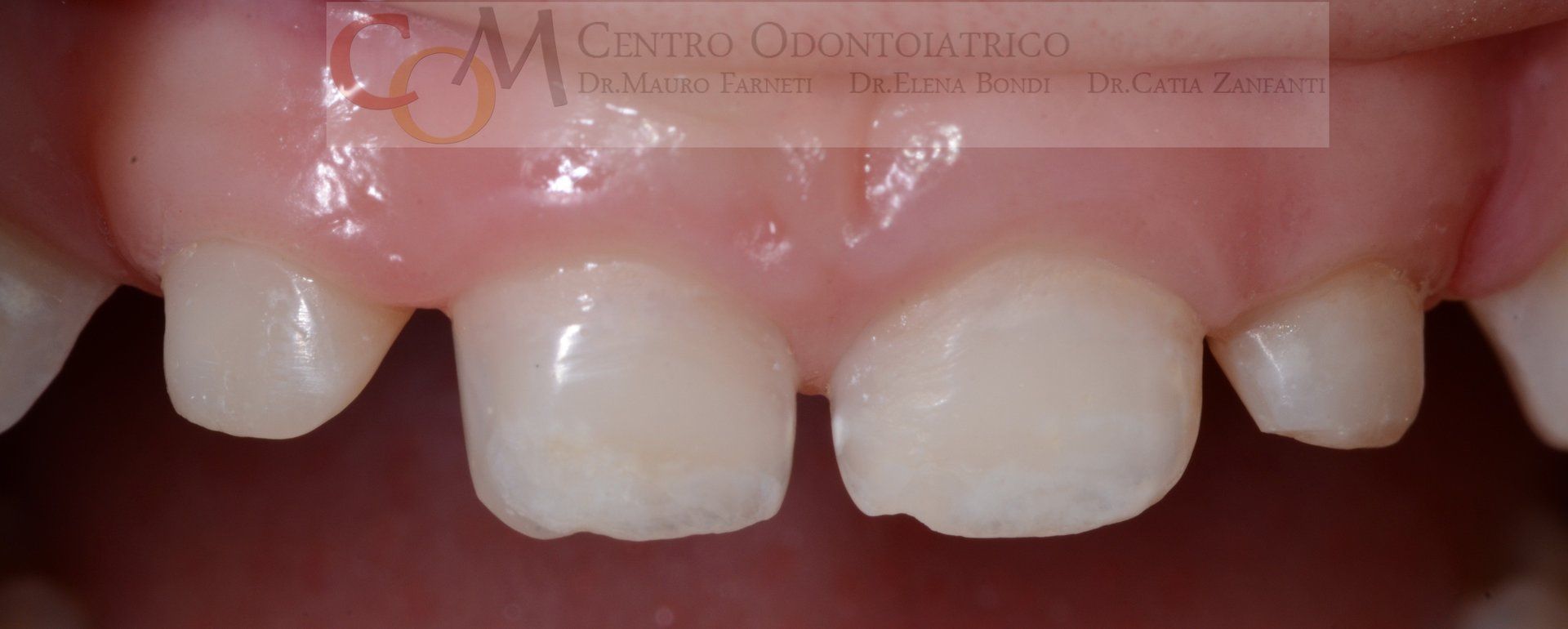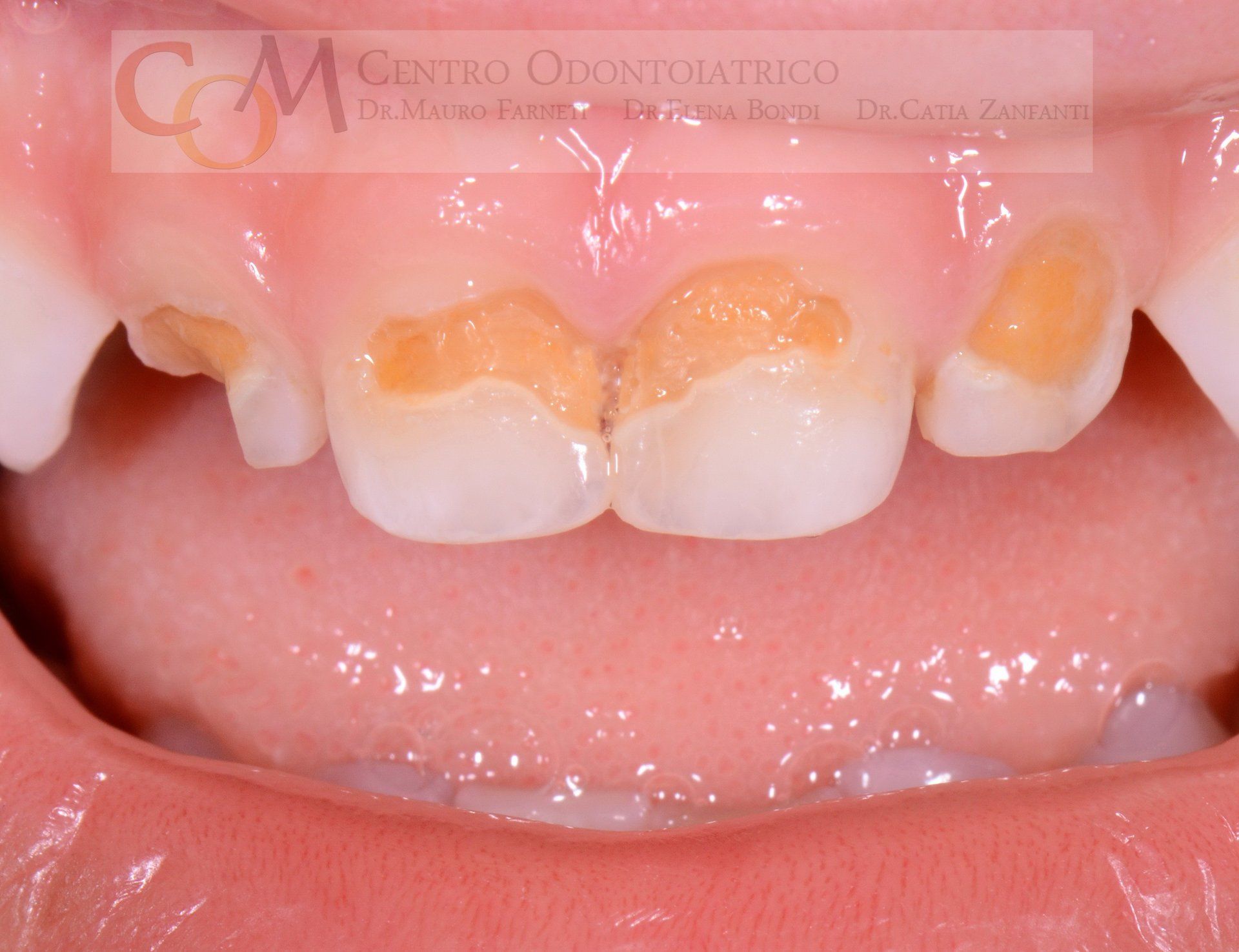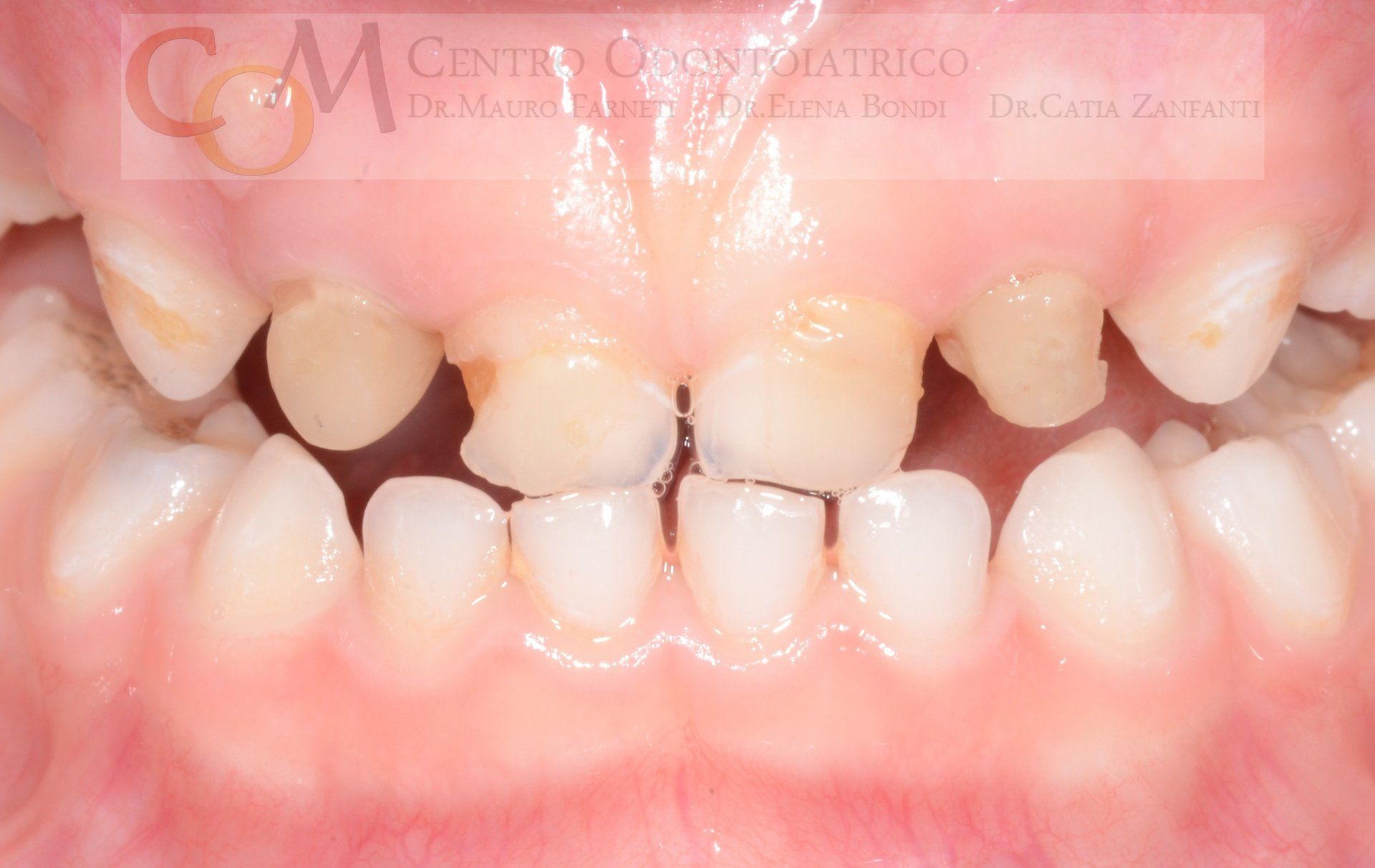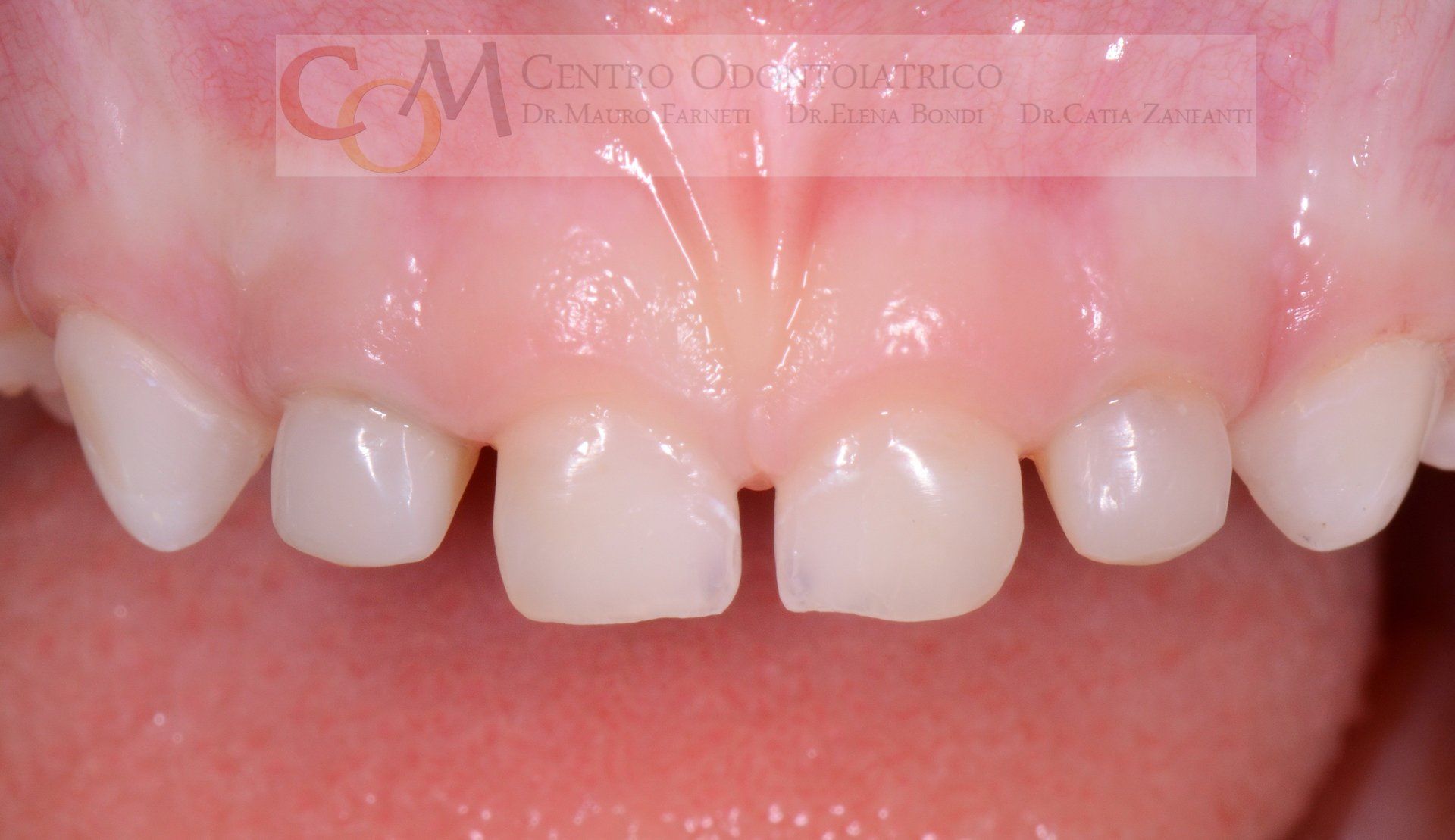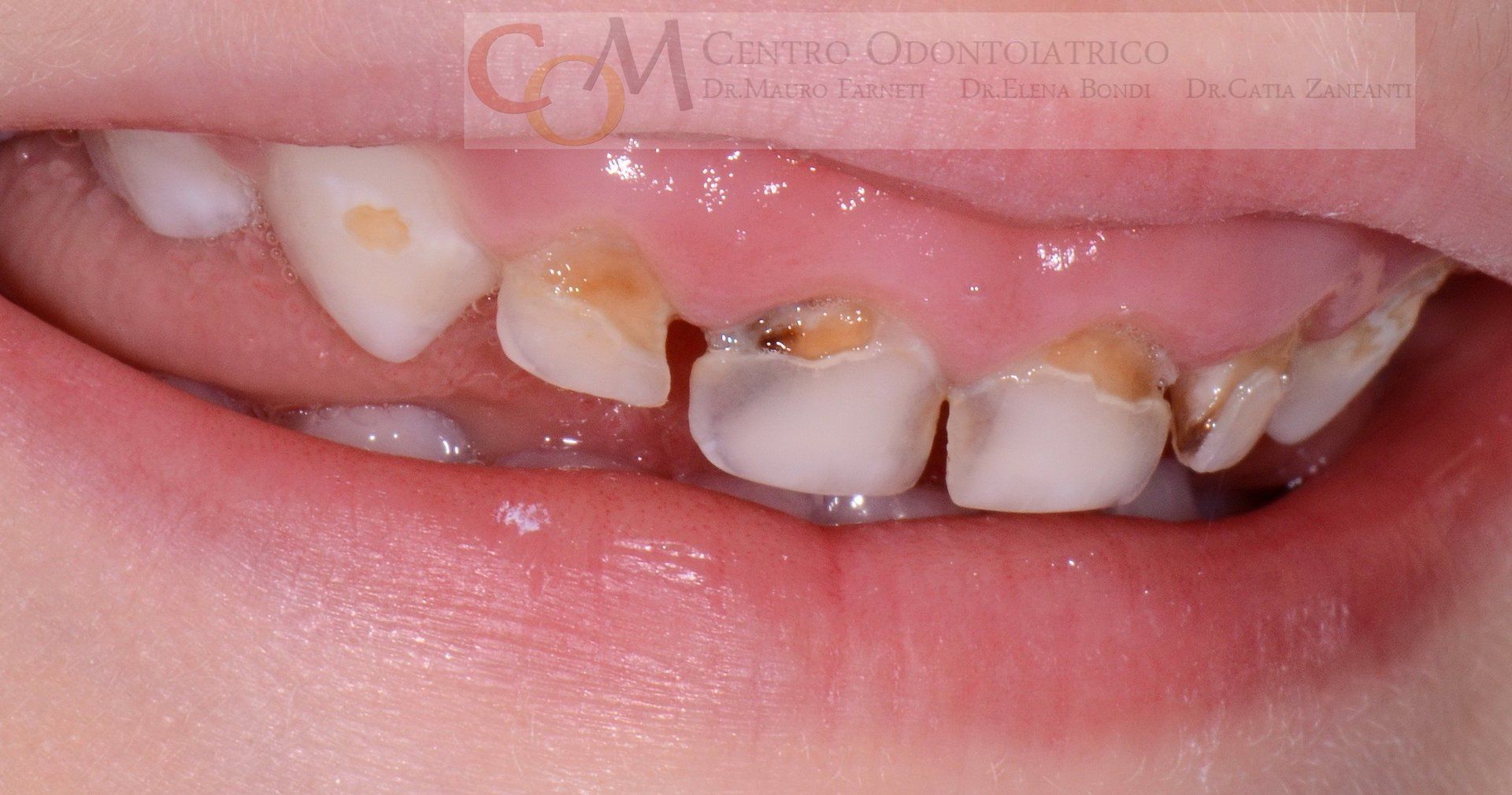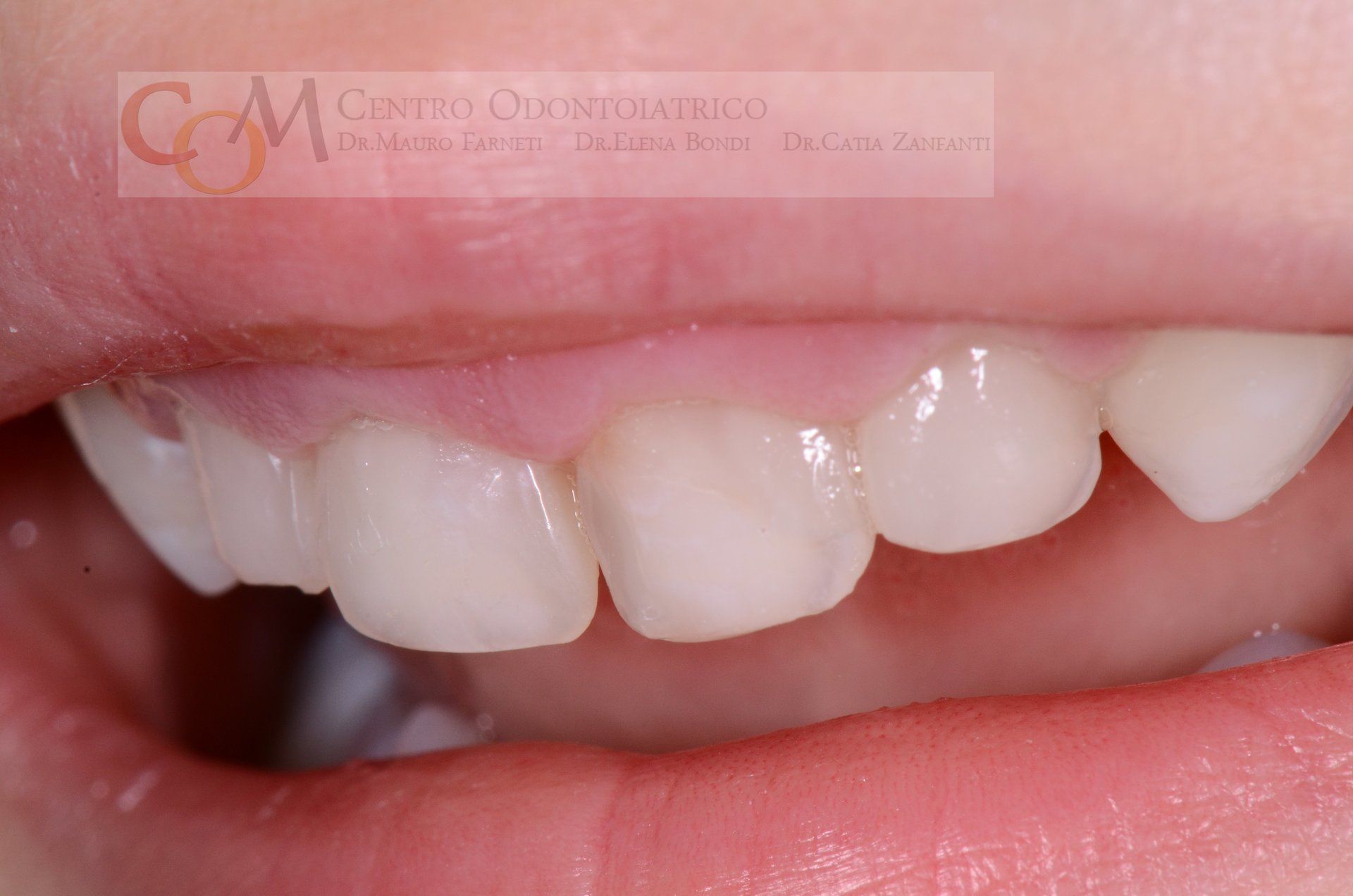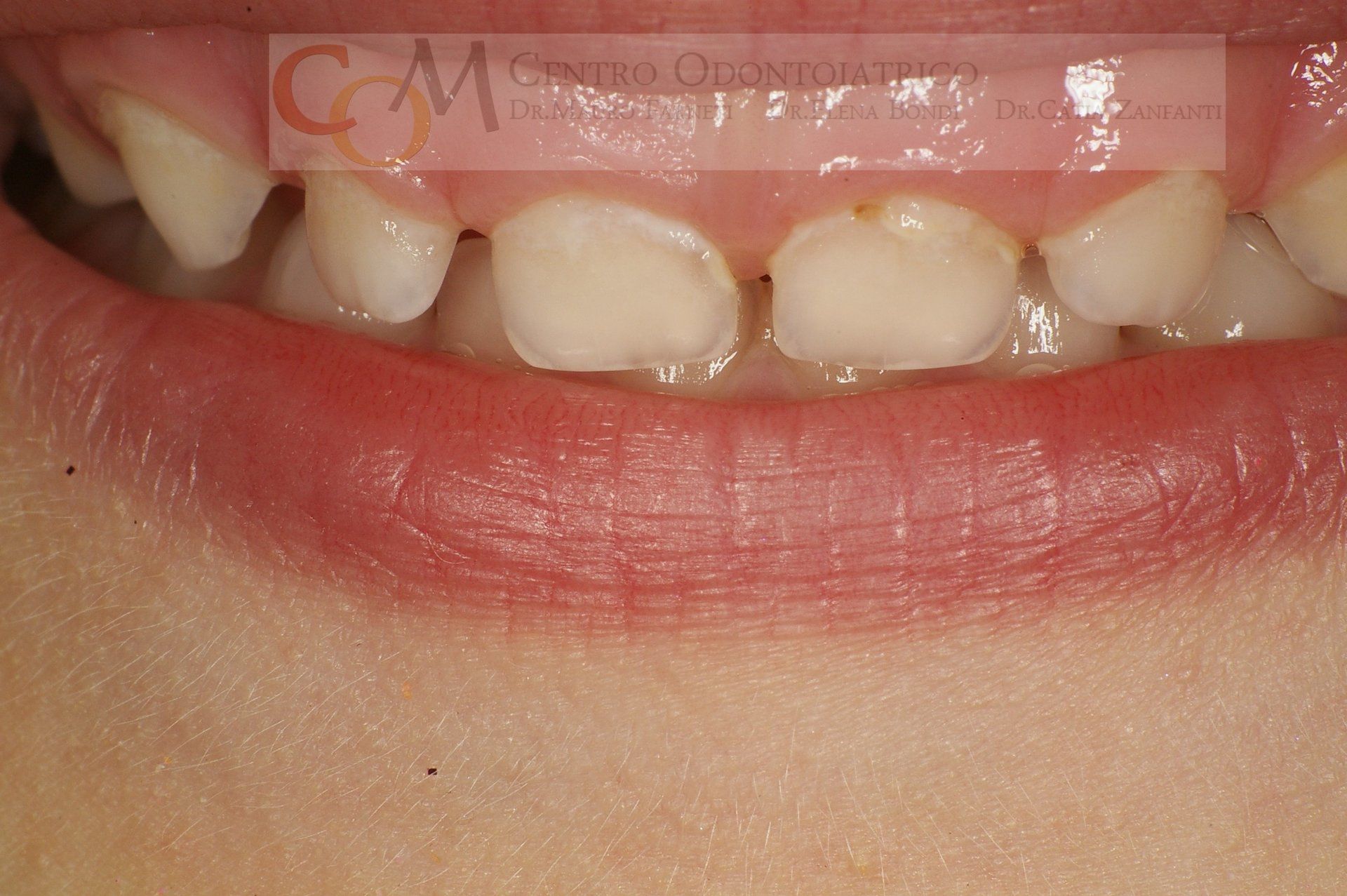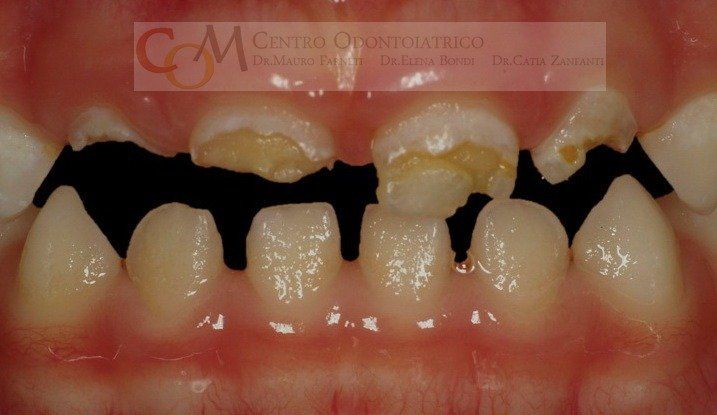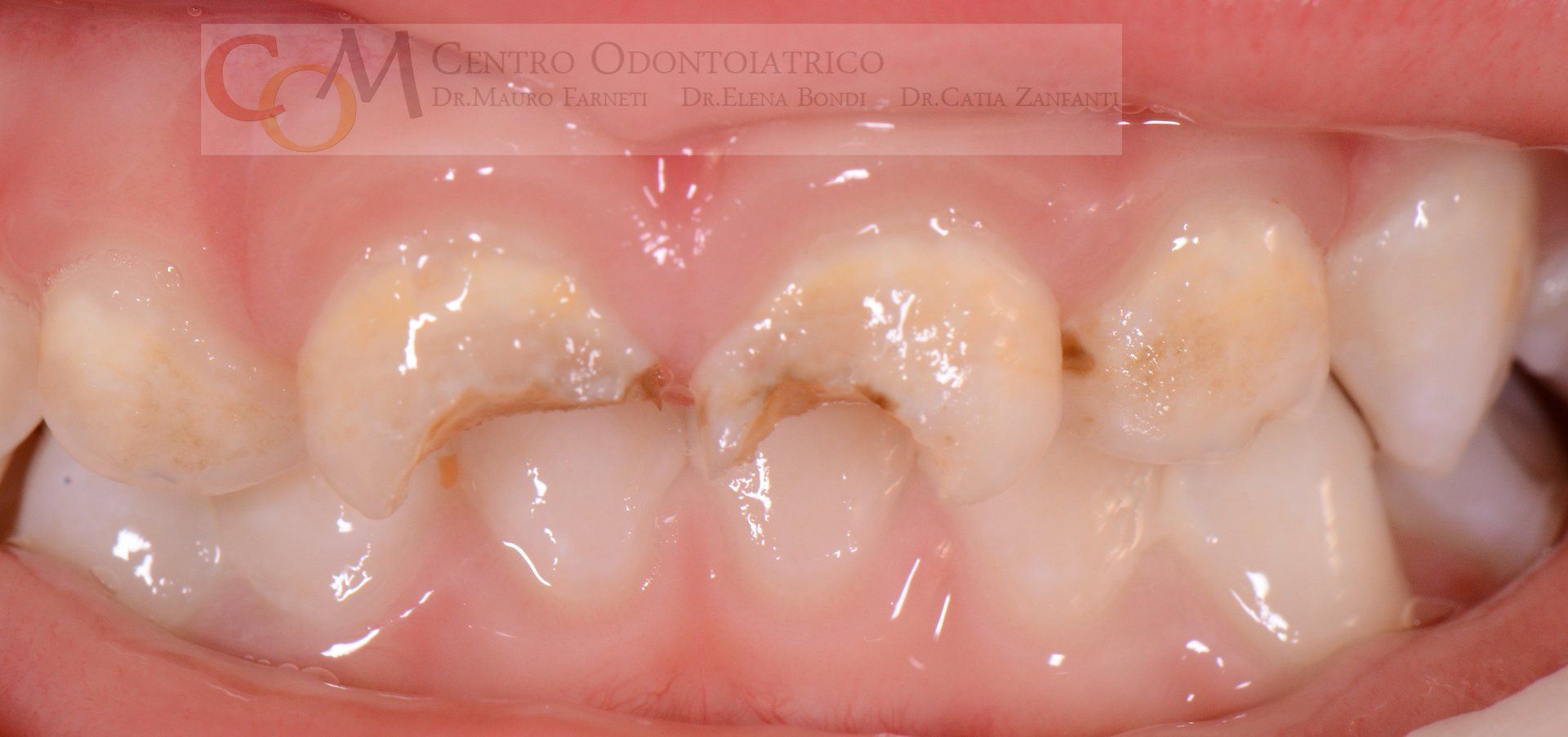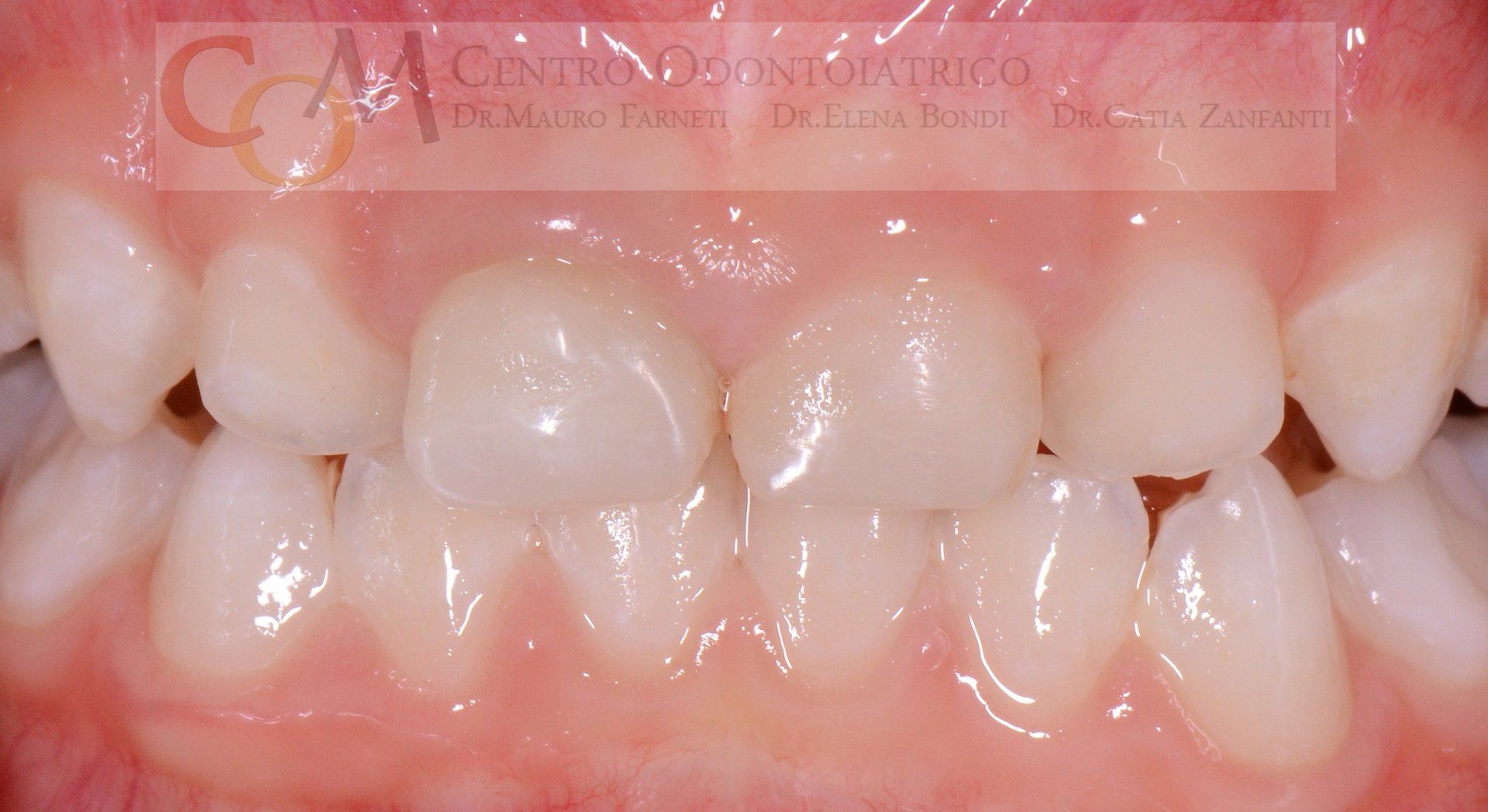DENTAL PRACTICE DRS. MAURO FARNETI, ELENA BONDI AND CATIA ZANFANTI | 14/H, Via Abruzzo -
40139 Bologna (BO) - Italy | VAT No. 02329571208
|
| info@centro-odontoiatrico.it
|
TOOTH DECAY IN CHILDHOOD
Before delving into this topic, I'd like to show you, mums and dads, how it's possible to treat and restore your little one's teeth permanently... because it's both necessary and crucial to do so.
This showcase of some of my young patients is also for those who claim that treating a young child's teeth isn't possible (because it's challenging, the child doesn't cooperate...) or even deemed unnecessary.
G had severely damaged teeth, especially the lateral ones!
But we managed to save them all, and now G happily poses for photographs!
D is only 30 months old, and came from afar... but went back home happy!
L underwent outpatient treatment... the nitrous oxide helped us greatly: an excellent result, I'd say!
We saved all of S's teeth too. She's much happier now!
And now some information...
Tooth decay in children is one of the main reasons parents seek dental intervention. The condition progresses rapidly in primary teeth due to the limited enamel present in the primary dentition. This means that the time from the onset of tooth decay to involvement of the pulp (the nerve, leading to pain) is very short.
In the drawing, in white, on the left, is the enamel of a permanent tooth (adult) and the lesser amount in a baby tooth (on the right).
Early childhood caries refers to decay that affects young children: the lesions initially appear as white lines near the gumline of the tooth, then enlarge and turn orange: from that moment on, the severity of the lesions progresses rapidly.
The lighter line is an early sign of demineralisation occurring on the tooth, so the paediatric dentist should be involved as soon as possible.
Baby teeth often start decaying as soon as they erupt in the oral cavity because they are frequently in contact with simple sugars, such as those from a bottle, or parents delay the introduction of home oral hygiene practices.
Particularly aggressive for baby teeth are: commercially available pre-sweetened tea/infusions in sachets; milk sweetened with any type of sugar, including honey; milk and biscuits, especially when used at night; daily use, often instead of water, of fruit juices or acidic drinks, to mention some of the most common mistakes made in attempting to provide a complete diet to the child, which often results in a condition called "Bottle Syndrome".
Bottle Syndrome is nothing more than the presence of multiple cavities in baby teeth, which often, at the age of two and a half/three, are already extensively decayed both in the posterior and anterior sectors.
It should always be remembered that decayed baby teeth are painful, very painful, like adult teeth, so this painful experience for the child must be absolutely prevented. Remember also that it is much easier for those who care for children and care about their well-being to intervene when pain is not yet present because anyone would be more willing to be approached in a state of well-being rather than afflicted with pain.
Furthermore, maintaining the health of baby teeth is fundamental for the correct eruption of future permanent teeth. The therapies we apply are always aimed at maintaining baby teeth, both for aesthetic appearance and for the important function they perform.


